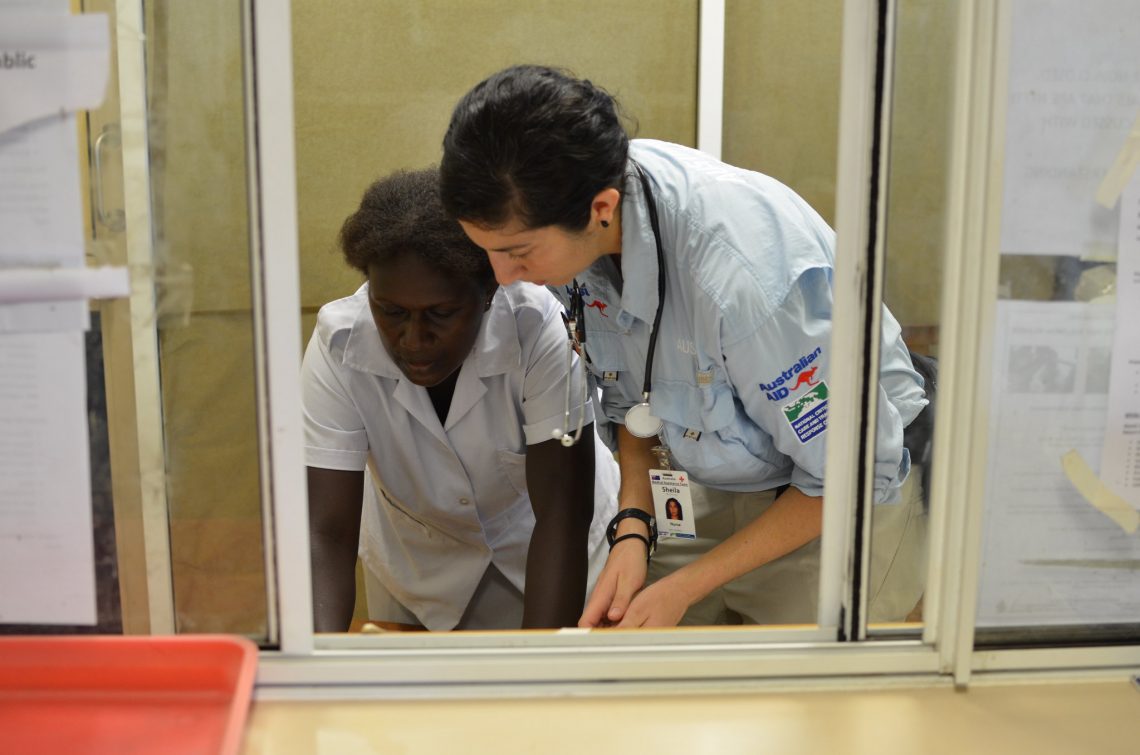
(Credit: David Kelly/AusAID/Flickr CC BY 2.0)
What ails Australian aid to the Pacific? Two Pacific expert views
By Sadhana Sen
20 March 2020
Recent analysis of aid to the Pacific outlining the “poor performance of aid in the Pacific” and arguing “Aid to the Pacific is the least value for money” has not been kind to the region.
It’s hard to argue with the analysis. DFAT’s own performance reports show that its aid to the Pacific has achieved less than aid to other regions.
But why is this? And where is the Pacific voice in this debate? I turned to two Pacific experts for their input as Australia works to reshape its international development policy.
Shamima Ali, the head of the Fiji Women’s Crisis Centre, one of the most effective NGOs in the Pacific and one that has long received direct funding from DFAT, told me that such conclusions call for a different way of doing development in the Pacific. “Aid programs should be determined by people receiving aid. There are issues around corruption and wastage but if the Pacific people were to have a greater say in programming and the aid we receive, we can then be held entirely responsible for it.”
She added that any development assistance given to the Pacific needs to take into consideration the cultural and religious beliefs and contexts within which Pacific lives exist, including the gendered rules under which people live.
In her analysis, Ms Ali argues that if development assistance shows poor returns, it’s often because of poor knowledge of the Pacific among some of the expertise provided by donor partners – often young persons who’ve done “some gender studies courses at university level”.
Overcrowding in the funding field with numerous donors funding an existing area of work means donor dollars are dispersed in a “haphazard manner”, according to Ms Ali. “There is a great need for aid coordination in the Pacific. Even among funding agencies and organisations there is a lot of competition in terms of who is in which space so there is much duplication and while this goes on, problems remain.”
Ali emphasises the importance of building Pacific expertise and capacity. According to her, “donors refuse to work with local experts even when Pacific expertise is available”. Instead, “people with poor understanding of the Pacific are brought from outside”, an underlying issue requiring urgent attention if Pacific nations and Australia are serious about addressing programs with poor development outcomes.
Autonomy to work without the interference of contractors and some Australian INGOs was also recommended by Ms Ali. She suggests there also needs to be greater trust on the part of donors to allow Pacific NGOs in particular to work with some independence. “We have come full circle. Australian INGOs are coming back into the Pacific and charging huge management fees. We could have kept greater autonomy for Pacific NGOs with capacity building where there were identified weaknesses, but no. And where is the development dollar going largely? Not to development for the Pacific but going back to Australian INGOs and contractors.” Australian NGOs and DFAT need to do some soul searching on how they disperse development dollars in the Pacific, Ali suggests.
Former Head of Parties to the Nauru Agreement, and now Solomon Islands Permanent Representative to the United Nations, Dr Transform Aqorau, agrees that more aid for development is not needed in the Pacific. “What we need is more smart aid so we reduce our development reliance on aid. Aid has to be targeted. What we need is not aid for development but rather proper economic policies that empower people to improve their social and economic conditions.”
Mr Aqorau contends that if aid in the Pacific is performing poorly, one needs to look at where the majority of aid ends up. “If 60 per cent or a good proportion ends up with Australian consultants and contractors, then it really begs the question of what is happening in our aid sector. If development assistance in the Pacific is failing, it’s the donor that has to be held accountable as most monitoring and evaluation frameworks, and transparency and accountability mechanisms are drawn up using Australian expertise.”
Dr Aqorau feels it is time the region goes back to basics with the development assistance it seeks. “Education in the Pacific is not compulsory so not mandatory for everyone. As a vision, our leaders should say we want assistance with achieving 100 per cent literacy and numeracy for our populations. No Pacific government has a policy that says it wants 100 per cent literacy or numeracy rates. Also it is rather ironic that in some of our villages we don’t have running water. If you want to develop the Pacific, let’s get the basics right before bringing in all these grandiose development ideas. People have gone back to digging wells and using nearby streams for drinking water and washing. We need to identify our basic needs and let the donors know what we want and not have the donors tell us what they need to do for us.”
Ultimately, it’s up to both the Pacific and Australia to improve aid effectiveness. And surely that should be our priority: better rather than more aid.
This is a shorter version of an article that first published in Islands Business.
About the author/s
Sadhana Sen
Sadhana Sen is the Regional Communications Adviser at the Development Policy Centre.
